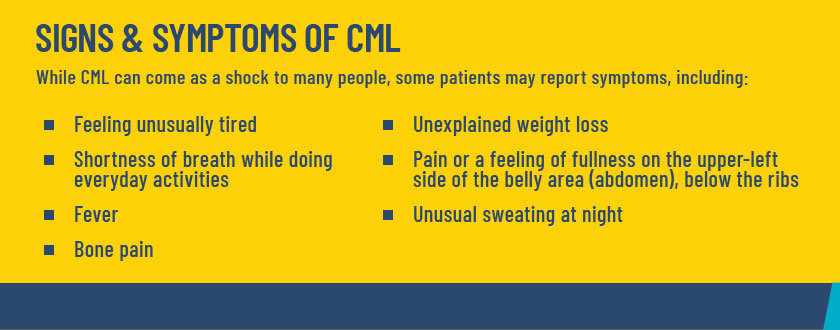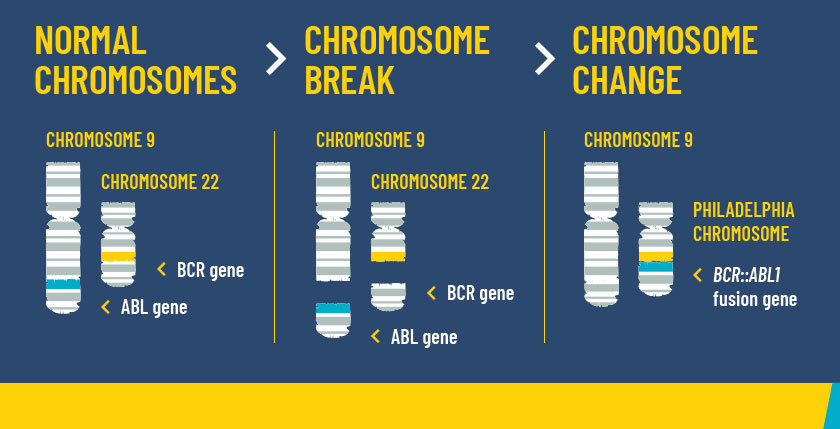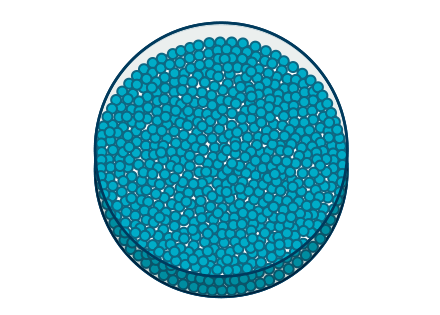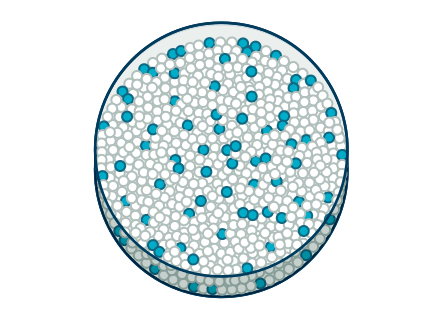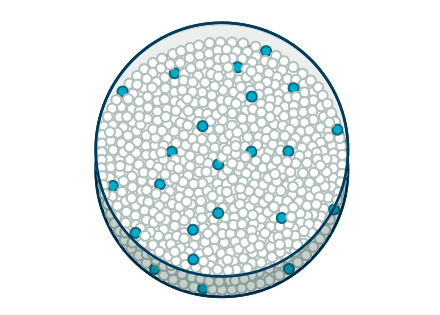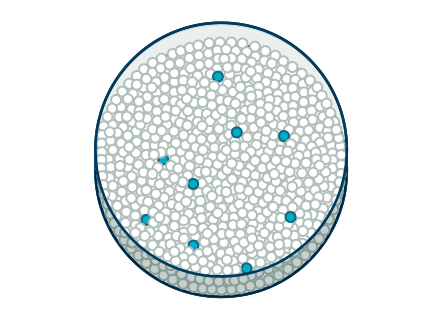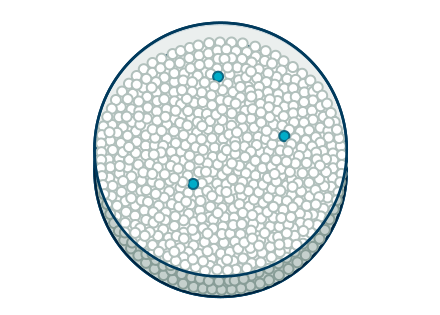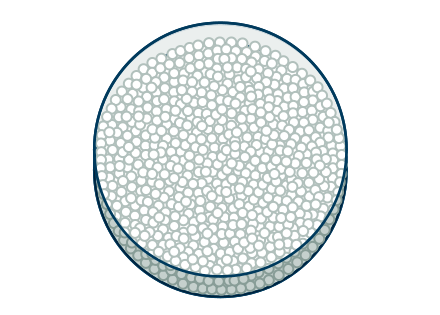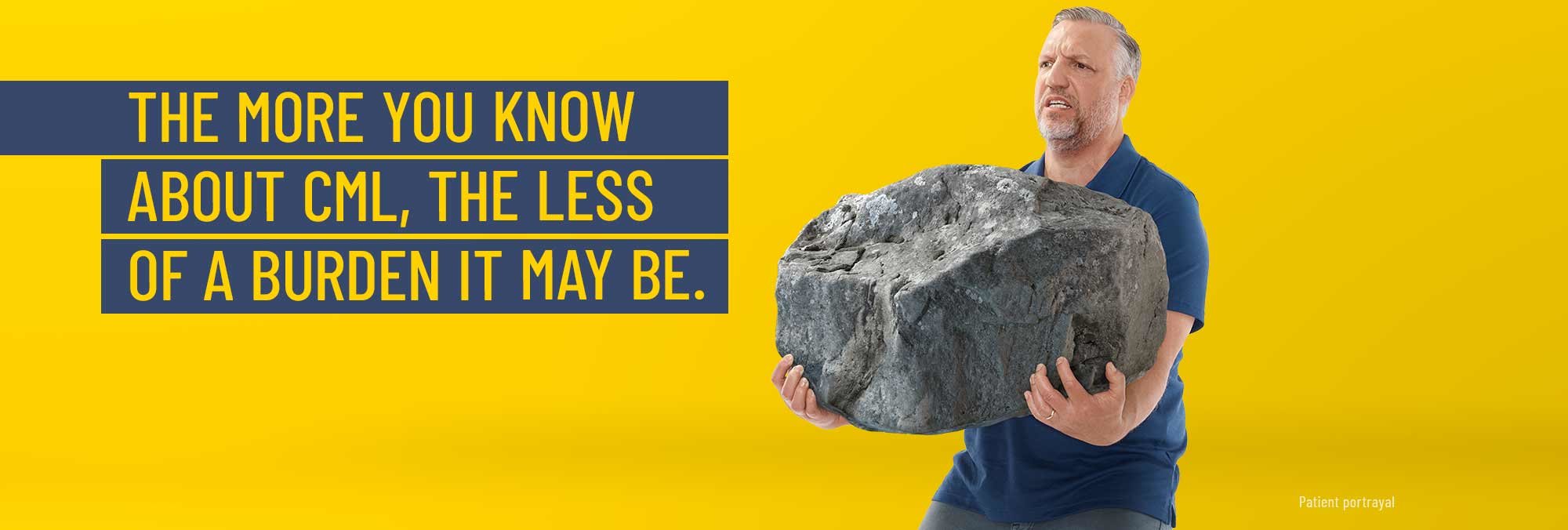
Chronic myeloid leukemia (CML) can strike like a bolt out of the blue.
Sometimes a routine checkup can lead to an urgent call from your doctor. Before you know it, you’re meeting with an oncologist to talk about blood cancer.
Your doctor can educate you about your options
It takes a team to take on CML, and your doctor plays a key role in explaining both your CML and your treatment options. Because a CML diagnosis doesn’t have to hold you back. Your doctor can help you find a medication that may be able to treat CML without controlling your life. This Doctor Discussion Guide can help you start a conversation.
What is CML?
CML is a cancer of the blood and bone marrow. Bone marrow is a sponge-like tissue in the center of most bones responsible for creating different types of blood cells.
A “good cancer”?
For more than 20 years, medications have helped make CML more manageable for many people. Thanks to advances in treatment, most people who have CML can anticipate having a life expectancy that’s close to normal.
Most adults with CML are diagnosed in the chronic phase and most people respond to treatment.
Your doctor may discuss the importance of keeping CML from progressing from the chronic phase to the more advanced accelerated or blast phases. If CML is left untreated, it is more likely to progress.
What causes CML?
CML occurs when:
The blood-forming cells of the bone marrow create too many white blood cells
These damaged white blood cells crowd out healthy red blood cells, white blood cells, and platelets
Most people have Ph+ CML
More than 95% of people with CML have Philadelphia chromosome–positive chronic myeloid leukemia (Ph+ CML)
Ph+ CML is caused by an abnormal fusion gene, called BCR::ABL1, which results from a change in chromosomes in the body
Each cell in the human body has 23 pairs of chromosomes
In CML, pieces of chromosomes 9 and 22 break off and trade places
This can create a new abnormal chromosome—the Philadelphia (Ph+) chromosome
It creates the defective BCR::ABL1 gene, which produces an abnormal protein called BCR-ABL
The role of medications in treating CML
One size doesn’t fit all in CML medications. That’s why you need to work with your doctor to find an effective treatment for you.
Most people with CML are treated with a type of targeted therapy called tyrosine kinase inhibitors (TKIs). These medications are thought to work by inhibiting the BCR-ABL protein that leads to uncontrolled growth of leukemic cells.
Start on a CML medication you may be able to stay with
Having a CML medication that combines effectiveness with side effects that may be manageable for you can make it easier to stay on treatment. That may mean better results for you. Use this Doctor Discussion Guide to talk about your treatment options.
Setting treatment goals
While every patient is different, it’s important to work closely with your doctor to discuss treatment goals. Some common goals include:
Getting blood cell counts back within a normal range
Reducing the number of leukemic cells in the body
Reducing the amount of BCR-ABL protein in the body to an undetectable level
Keeping CML from progressing
Treatment milestones in CML
The following illustrations can help you picture how the number of leukemic cells may decrease over time with treatment. The blue dots represent the amount of BCR::ABL1 in the body.
At Diagnosis: Baseline
At the time of a CML diagnosis, the amount of the abnormal BCR::ABL1 gene in the body is different for everyone. Your doctor will use the results of blood tests to determine your baseline. This is typically 100%
Early Molecular Response (EMR)
Blood counts for red blood cells, white blood cells, and platelets return to normal
With EMR, BCR::ABL1 (International Scale, IS) is between 10% and 1% at 3 months and 6 months
Complete Cytogenetic Response (CCyR)
If there are no Ph+ cells detected in the bone marrow, your doctor may say you have a CCyR
With CCyR, BCR::ABL1 in the blood is ≤1%
Major Molecular Response (MMR)
With MMR, BCR::ABL1 in the blood is ≤0.1%
Deep Molecular Response (DMR): MR4.0 or MR4.5
With DMR, BCR::ABL1 in the blood is ≤0.01% (MR4.0) or ≤0.0032% (MR4.5)
Complete Molecular Response (CMR)
With CMR, BCR::ABL1 in the blood is undetectable
You and your doctor are in it together
It takes a team effort to fight CML. You need to take your medication as prescribed, and your doctor should be open to discussing any issues you may be having. The Doctor Discussion Guide can help you have a productive conversation.

